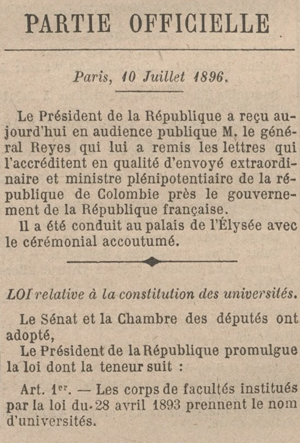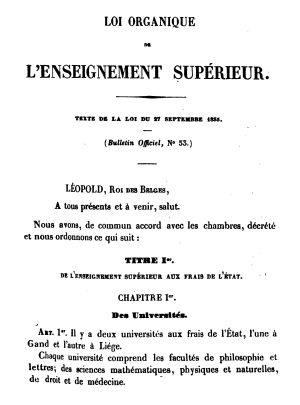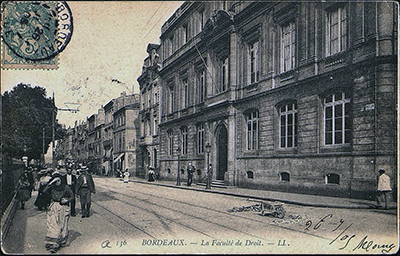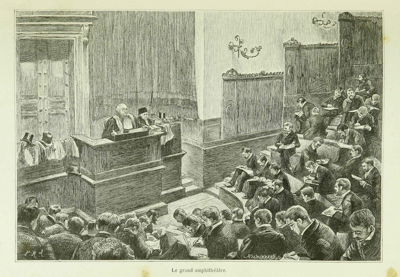Category: Institutions and their history
The Belgian academic landscape before the First World War
The Belgian academic landscape as it had developed from the first law on higher education of September 27, 1835 is the result of a historic connection as well as a parliamentary consensus on freedom of education, geographical decentralization and structural centralization. The history of higher education in Belgium in the contemporary era began at the turn of the 19th century, when the “Belgian” space annexed to the Republic, a bundle departments, saw in 1797 the closure of the former University of Leuven. It was a casualty of the abolition of universities by the decision of the National Convention of September 15th, 1793. After a period of apparent vacancy, higher education in the “combined” departments was subject to Napoleonic reforms. The Act of Ventôse 22, XIIpour lire la suite…
Dissolved, temporary, consecrated : the difficult resurgence of the Bordeaux Faculty of Law
Despite being a pioneer of higher education with its auditorium and the lectures of Ausonius ( ? 310-394) in the 4th century of our era, Bordeaux had to wait a long time before the opening of its first official university. A rich city and major trading port, it only became a place of legal education during the 15th century with the creation of the Universitas Burdiagalensis. Its structure remained substantially the same for nearly 350 years before being swept away by revolutionary impulses. The city produced many renowned jurists such as Nicolas Boerius (1469-1539), Bernard Automne (1574 ?-1666), Étienne Cleirac (1583-1657), Abraham Lapeyrère (1598 ?-1690 ?), or even famous member of parliament Charles Louis de Secondat, baron of La Brède and Montesquieu (1689-1755). In Bordeaux as in many otherpour lire la suite…
Toulouse and Paris : the ties of competing law schools
Paris and Toulouse are the two most important law schools in France. Throughout the 19th century, they dominated the French academic landscape, notably by their attractiveness, their enrollment numbers and the degrees they awarded. They and a dozen other legal faculties on the territory created by Napoleon from as early as 1804 shared the same professionalization objective : they organized examinations and delivered the titles necessary for the practice of legal and judicial professions (magistrates, lawyers, teachers, etc.) to children of the most privileged classes. Everywhere, education was focused on civil law, Roman law and procedural law. Little to no provision was made for other branches of law (administrative law, commercial law or legal history). The contemporaries, among whom some famous writers (Balzac, Zola and others),pour lire la suite…




